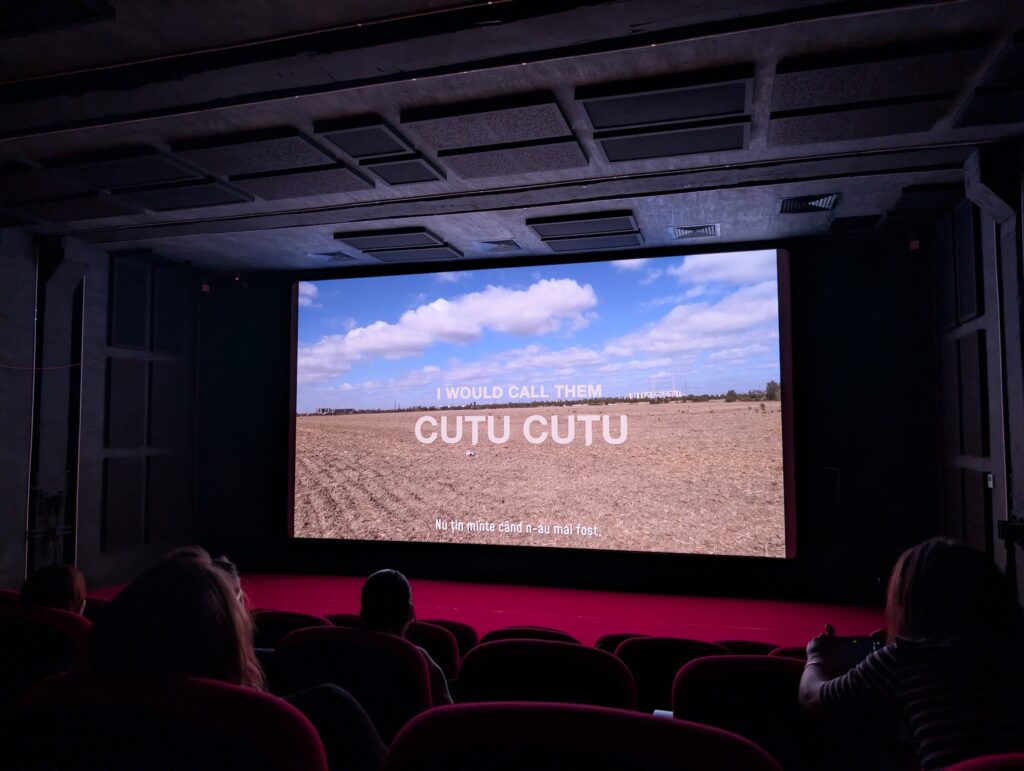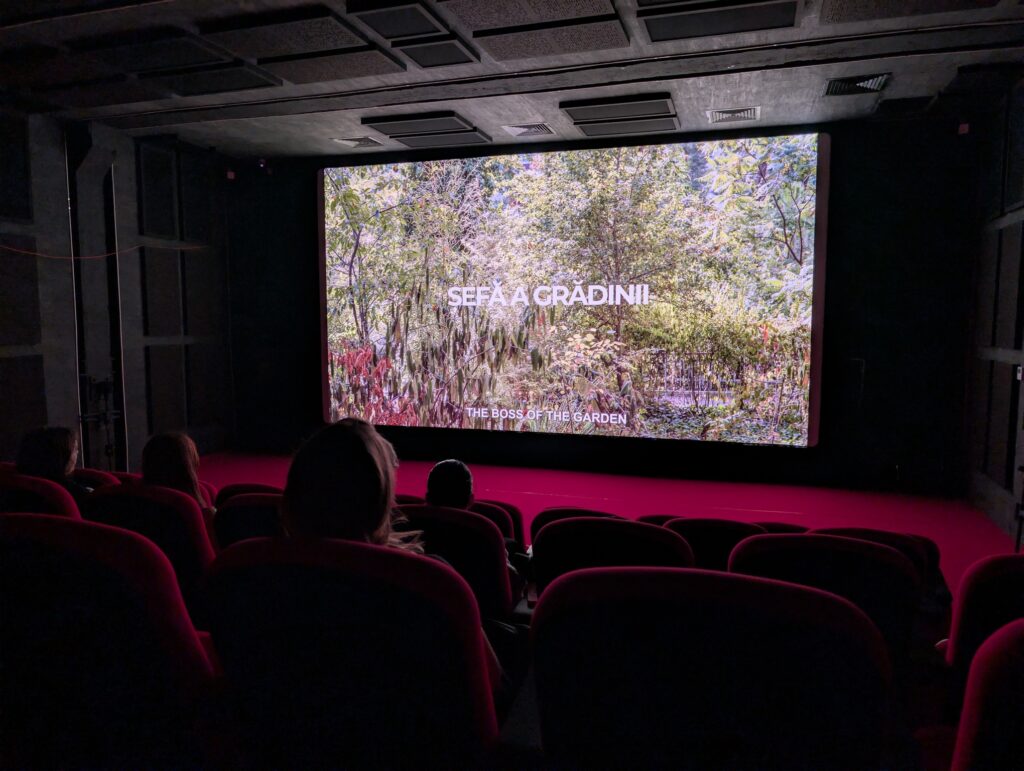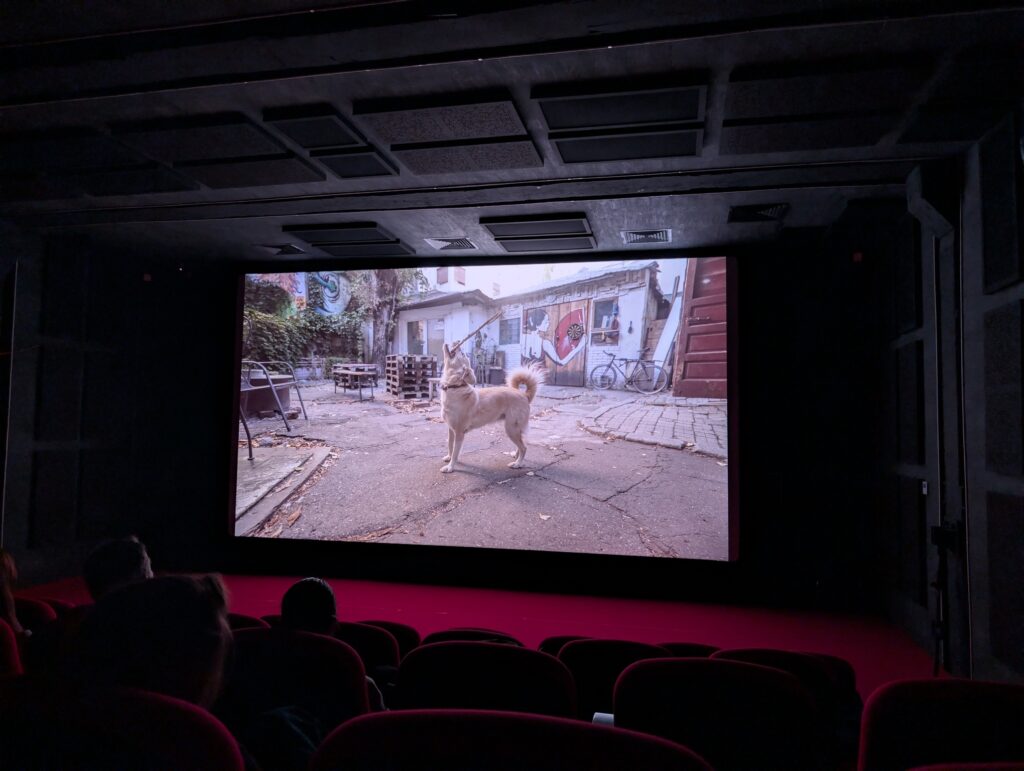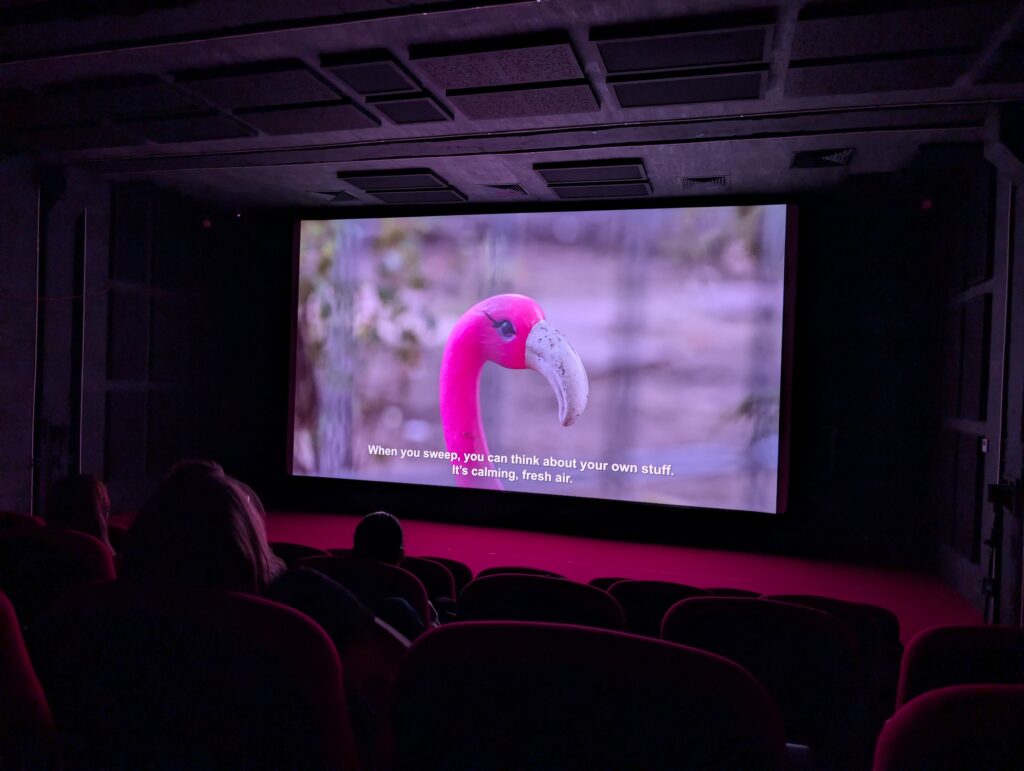Pokaz filmów krótkometrażowych:
Narodowe Centrum Polskiej Piosenki / wstęp wolny
Po pokazie rozmowa z organizatorami szkoły letniej SPOTLIGHT
Krótkometrażowe dokumenty Letniej Szkoły SPOTLIGHT powstały we wrześniu 2025 roku w Bukareszcie, gdzie międzynarodowi studenci realizowali projekty poświęcone relacjom międzygatunkowym. Po seansie odbędzie się spotkanie z kuratorami Spotlight: Clarą Kleininger-Wanik i Michałem Wanke z Uniwersytetu Opolskiego.
The Spotlight Summer School short documentaries were shot by international students pursuing multispecies projects in Bucharest in September 2025. The screening will be followed by the discussion with the Spotlight curators: Clara Kleininger-Wanik and Michał Wanke of the University of Opole.
1. I Would Call Them Cuțu Cuțu
reż. Maria Malcica, Zeynep Özmen, Domenico Sparaco
PL: Przemierzając ulice Bukaresztu, można zauważyć, że życie psa sprowadza się dziś jedynie do ludzkiej opieki albo schroniska. A jednak pamiętam czasy, gdy mogłem włóczyć się z towarzyszami po całym mieście. Bezpańskie psy wciąż jednak nawiedzają Bukareszt.
ENG: Wandering across the city of Bucharest, one can see that the possible ways of living as a dog are limited to human ownership and shelters. But I remember the time where I could hang out with my companions all across the city. And yet, stray dogs still haunt the city.
2. Sefa gradinii, the boss of the garden
reż. Aris Dougas Chavarria, Elif Öz, Sonia Sadowska
PL: Ten dokument opowiada o dzielnicy Titan w bukareszteńskim Sektorze 3 – zielonej enklawie w tętniącym życiem mieście, gdzie rodzą się różnorodne relacje międzygatunkowe i lokalne inicjatywy. Wciśnięte pomiędzy postsocjalistyczne blokowiska, życie w niewielkich ogrodach wspólnotowych toczy się w wolniejszym rytmie – w przestrzeniach, gdzie przeszłość spotyka się z teraźniejszością, prywatne przenika się z publicznym, a współistnienie różnych gatunków staje się możliwe.
ENG: This documentary follows the Titan neighborhood of Bucharest’s Sector 3, a green enclave within a bustling city where diverse more-than-human relations and local initiatives take root. Tucked between post-socialist blocks, life in small communal gardens unfold at a slower rhythm-spaces where past meets present, private blends with public, and interspecies coexistence emerges.
3. Ursa - The She-Bear
reż. Nina Li, Petra Noveljic, Daniel Serbanica
PL: W samym sercu Bukaresztu, w artystycznej komunie ukrytej za zamkniętymi bramami, ludzie, zwierzęta, natura i przestrzeń spotykają się w oazie twórczości, tworząc nieustannie zmieniającą się, a zarazem spokojną wspólnotę.
ENG: In the middle of Bucharest, in an art commune behind closed gates, people, animals, nature, and space come together in an oasis of creation forming a constantly transforming yet peaceful community.
4. Close Your Eyes and Enjoy the Noise
reż. Giovanni Lorenzi, Wenjia Zhou, Nicoleta-Cati Zichil
PL: Jak ludzie postrzegają ptaki Bukaresztu? Co ich spojrzenie mówi nam o podziałach: między samymi ludźmi, między ludźmi a innymi zwierzętami, między różnymi gatunkami?
ENG: How do people perceive Bucharest birds? What do their perceptions tell us about human divisions: among humans, between humans and other animals, between different species?




